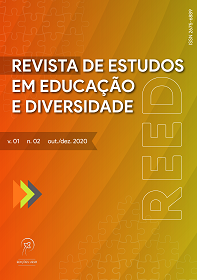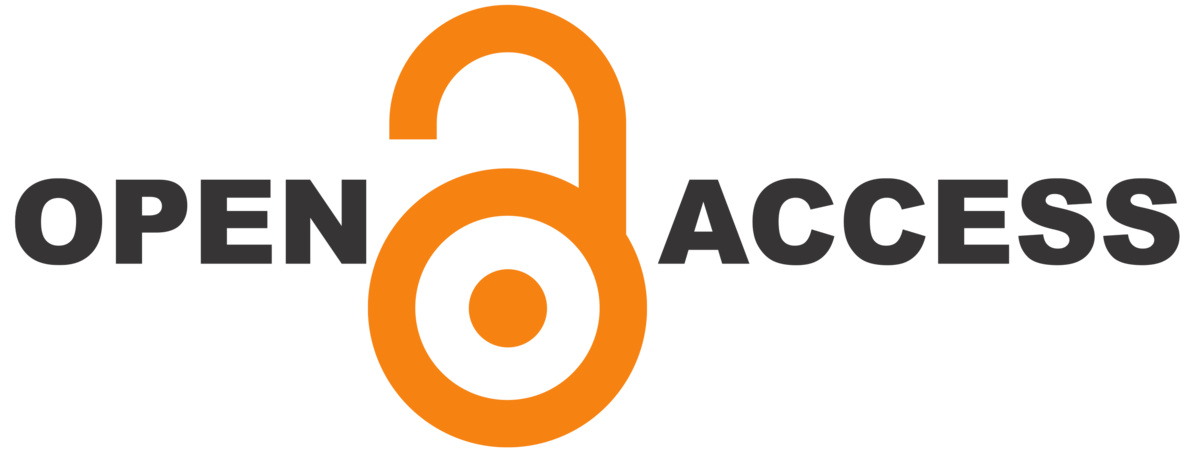SURVEY AND SAMPLING RESEARCH: ELEMENTARY THEORETICAL CONTRIBUTIONS
DOI:
https://doi.org/10.22481/reed.v1i2.7677Keywords:
Survey, Sampling, Scientific Research MethodologyAbstract
When a searcher wants to investigate a problem, whose solution depends on information coming from people, a Survey research may be the suitable methodological procedure. This article has as main objective to discuss about the survey research theoretical, operational and ethically. It has as specific objectives to conceptualize survey by telling its characteristics, discussing its development through history, presenting its operational elements (technics and tools); to offer briefly theoretical aspects about sampling; to indicate the reaches and edges of the survey; to debate ethical issues to this sort of research; to exposure available tools for its execution in the Web. There is, at the end, a brief comment about the mainly selected works employed to compose this article. Which has its construction justified by being an input of elementary knowledges to enable researchers investigate using this sort of procedure. The base was two seminal works that discuss the survey research: Babbie (1999) and Fowler Jr. (2011). This article’s methodological construction is based on literary and electronic review. It was concluded that the operational elements, the data collection tools, the vantages and disadvantages were properly presented, as well as the reaches and edges of the survey research.
Downloads
References
ALVES, Rubem. Filosofia da ciência: introdução ao jogo e suas regras. São Paulo: Edições Loyola, 2000.
AVALIO. [20--]. Disponível em: http://avalio.com.br/. Acesso em: 02 jul. 2017
BABBIE, Earl. Métodos de Pesquisas de Survey. Tradução: Guilherme Cezarino. Belo Horizonte: Ed. UFMG, 1999. 519 p. (Coleção Aprender).
BABBIE, Earl. Métodos de investigación por encuesta. Tradução: Claudia Infante. Ciudad de México: Fondo de Cultura Económica S.A, 1988. 439 p. (Biblioteca de la Salud).
BARDIN, L. Análise de conteúdo. São Paulo: Edições 70, 2011.
BRASIL. Centro Nacional de Aperfeiçoamento de Pessoal para a Formação Profissional. Ministério da Educação e Cultura. Técnica de pesquisa Survey: Curso programado individualizado. São Paulo: Cenafor, 1980. 322 p.
BRASIL. Ministério da Saúde. Conselho Nacional de Saúde. Resolução n. 466, de 12 de dezembro de 2012. Aprova diretrizes e normas regulamentadoras de pesquisas envolvendo seres humanos. Brasília, Diário Oficial da União, 12 dez. 2012.
CANAL DO ENSINO: 12 sites gratuitos para fazer questionários online. 12 sites gratuitos para fazer questionários online. [20--]. Disponível em: https://canaldoensino.com.br/blog/12-sites-gratuitos-para-fazer-questionarios-online. Acesso em: 02 jul. 2017.
CASTANHEIRA, Nelson. Estatística: aplicada a todos níveis. Curitiba: Ibpex, 2005.
Disponível em: <https://doodle.com/web-Survey>. Acesso em: 02 jul. 2017.
FOWLER JUNIOR, Floyd J. Pesquisa de levantamento. Tradução: Rafael Padilla Ferreira. Porto Alegre: Penso, 2011. 232 p. (Métodos de pesquisa).
FREITAS, Henrique et al. O método de pesquisa Survey. Notas & Comunicações: Revista de Administração, São Paulo, v. 35, n. 3, p.105-112, jul./set. 2000. Trimestral. Disponível em: <http://www.clam.org.br/bibliotecadigital/uploads/publicacoes/1138_1861_freitashenriquerausp.pdf>. Acesso em: 02 jul 2017.
GARRITY, Peter. Matemática aplicada aos negócios. Rio de Janeiro: Campus, 2000.
GONÇALVES, Bruna Beza da Silva Gonçalves. Softwares de apoio à pesquisa científica: levantamento e análise de características. Disponível em: <https://repositorio.ufsc.br/xmlui/bitstream/handle/123456789/165459/SOFTWARES%20DE%20APOIO%20%c3%80%20PESQUISA%20CIENT%c3%8dFICA.pdf?sequence=1&isAllowed=y > Acesso em 01 jul. 2017.
GOOGLE FORMS. [20--]. Disponível em: https://www.google.com/intl/pt-BR/forms/about/. Acesso em: 02 jul. 2017.
HOEL, Paul G. Estatística elementar. São Paulo: Atlas, 1981.
LIMA FILHO, L. M. de Araújo. Amostragem. UFPB. 2015. Disponível em: <http://www.de.ufpb.br/~luiz/Adm/Aula9.pdf>. Acesso em: 10 jul. 2017
LINCOLN, Yvonna S.; GUBA, Egon G. Controvésias paradigmáticas, contradições e confluências emergentes. In: DENZIN, Norman K. O planejamento da pesquisa qualitativa: teorias e abordagens. Porto Alegre: Artmed Bookman, 2010. p. 169-192.
MACEDO, Roberto Sidnei; GALEFFI, Dante; PIMENTEL, Álamo. Um rigor outro: sobre a questão da qualidade na pesquisa qualitativa. Salvador: EDUFBA, 2009.
MORE: Mecanismo online para referências, versão 2.0. Florianópolis: UFSC Rexlab, 2013. Disponível em: http://www.more.ufsc.br/. Acesso em: 10 jul. 2017.
MORE: Mecanismo online para referências, Estilo Vancouver. Florianópolis: UFSC Rexlab, 2013. Disponível em: http://more.ufsc.br/vancouver/. Acesso em: 10 jul. 2017.
ONLINE PESQUISA. [20--]. Disponível em: https://www.onlinepesquisa.com/. Acesso em: 02 jul. 2017.
QUESTIONARIO.COM. [20--]. Disponível em: http://www.questionarios.com/site/. Acesso em: 02 jul. 2017.
SANTOS, Carlos. Ibope dá exemplo de erro grosseiro e remendo emergencial. Publicado em: 29/09/2010. Disponível em: <http://blogdocarlossantos.com.br/ibope-da-exemplo-de-erro-grosseiro-e-remendo-emergencial/> Acesso em: 10 jul. 2017.
SPIEGEL, Murray R. Estatística: resumo a teoria. São Paulo: McGraw-Hill, 1977.
SURVEY MONKEY. [20--].Disponível em: https://pt.Surveymonkey.com/?. Acesso em: 02 jul. 2017.
SURVIO.COM. [20--]. Disponível em: http://www.survio.com/br/ . Acesso em: 02 jul. 2017.
Downloads
Published
How to Cite
Issue
Section
License
You are free to:
Share - copy and redistribute the material in any medium or format; Adapt - remix, transform, and build from the material for any purpose, even commercially. This license is acceptable for Free Cultural Works. The licensor cannot revoke these freedoms as long as you follow the terms of the license.
Under the following terms:
Attribution - You must appropriately give credit, provide a link to the license, and indicate if any changes have been made. You may do so in any reasonable way, but not in a way that suggests that you or your use is endorsed by the licensor.
There are no additional restrictions - You cannot apply legal terms or technological measures that legally restrict others to make any use permitted by the license.












